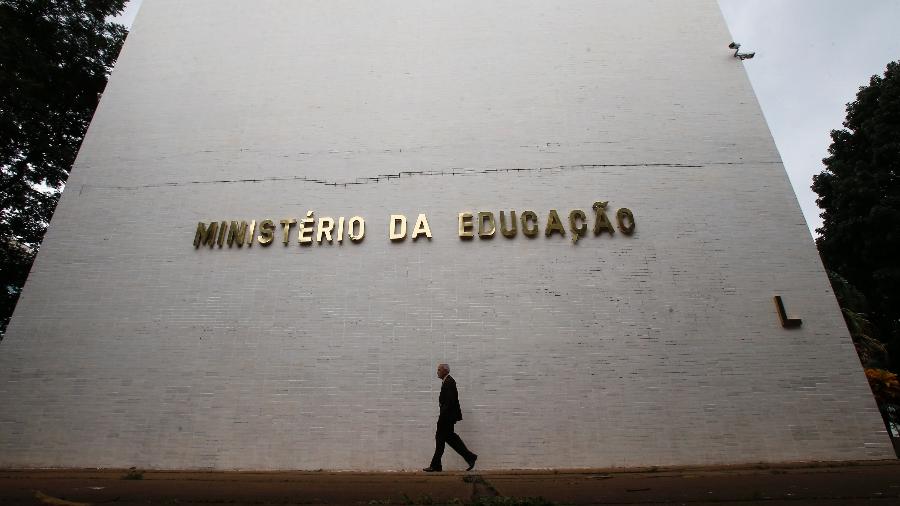RIO DE JANEIRO, BRAZIL – Jair Bolsonaro‘s budget proposal for 2020 reduces the total funding for the Ministry of Education (MEC) by 18 percent in relation to the 2019 authorized figures.
The cuts range from basic education to post-graduation, but the impact will be much greater in research funding and in large federal university accounts.
The largest cut occurs in CAPES (Coordination for the Improvement of Higher Education Personnel), which finances postgraduate researchers and also basic education teachers.

According to the proposal, CAPES will lose half of its budget: from R$4.25 billion (US$1.06 billion), the amount authorized for 2019, to R$2.20 billion in 2020.
CAPES has suffered freezes of R$819 million in funds this year. The body has already cut 6,198 grants so far, the equivalent of 7 percent of what it had at the beginning of the year.
The draft Budget Law for 2020 was forwarded to Congress by the federal government last Friday, August 30th. MEC will have a planned budget of R$101 billion in 2020, against the R$122 billion approved for 2019.
The report’s comparisons take into account the 2020 proposal with the amounts authorized for 2019. The MEC undergoes a contingency of approximately R$6 billion, ranging from basic education to higher education.
When taking into account the general budget of all federal universities, the drop is 7.4 percent (nominal values, without adjustment for inflation). But 16 of the 68 federal universities will experience higher-than-average cuts.
Among the institutions losing the most money are some of the largest universities in the country, with many students, concentrating the most important academic research and also with the largest budgets.
The Federal University of Rio de Janeiro (UFRJ), for instance, expects a reduction of 24 percent (also in nominal values). An amount of R$2.5 billion is set for 2020, against the R$3.3 billion approved for this year.
At UnB (University of Brasília), the reduction is 24 percent and 23.5 percent at UFRGS (Federal University of Rio Grande do Sul). At UFMG (Federal University of Minas Gerais), there will be a reduction of 20 percent.
The largest reduction (63 percent) occurs in the Agreste de Pernambuco federal university, but the institution was only founded last year and is still in its implementation stage.
Ten federal institutions had their projections unchanged or slightly increased. The highest increase is in UFBA (Federal University of Bahia), up 2 percent.
Several universities have reported difficulties in paying their bills this year. Federal
universities have suffered a R$2.2 billion blockage of funds this year, the equivalent of 30 percent of discretionary resources (which exclude salaries).
FNDE (National Fund for Education Development), a MEC agency in charge of actions such as the purchase of school vehicles and transfers to construction sites, will have its budget reduced by 24 percent.
The item ‘Support to Infrastructure for Basic Education’, for instance, fell from R$606 million in 2019 to R$230 million.

The cash forecast for the management of university hospitals was reduced by 37 percent. EBSERH (Brazilian Company of Hospital Services) had an authorized budget of R$5.1 billion in 2019, but the 2020 budget provides only R$3.2 billion.
A reduction of 30 percent is expected for the INEP (National Institute for Educational Studies and Research), in charge of federal evaluations of ENEM (National High School Examination). It is expected to drop from R$1.5 billion in 2019 to R$1.1 billion next year.
CNPQ (National Council for Scientific and Technological Development), a research and development body linked to the Ministry of Science, Technology, Innovation, and Communications, saw its budget remain stable: the R$1.2 billion authorized in 2019 is virtually the same as in the 2020 project.
CNPQ has announced that it can not afford to pay 84,000 scholarship holders as of this month. The deficit currently stands at R$330 million for the year.
The government estimates that in 2020 it will provide R$89.2 billion for so-called discretionary spending in all areas. In 2019, for instance, the government began the year with permission to spend R$129 billion on these non-compulsory expenses.
The economy’s poor performance and disappointing revenue, however, led to cuts in ministries’ funds, bringing this figure down to R$97.6 billion.

